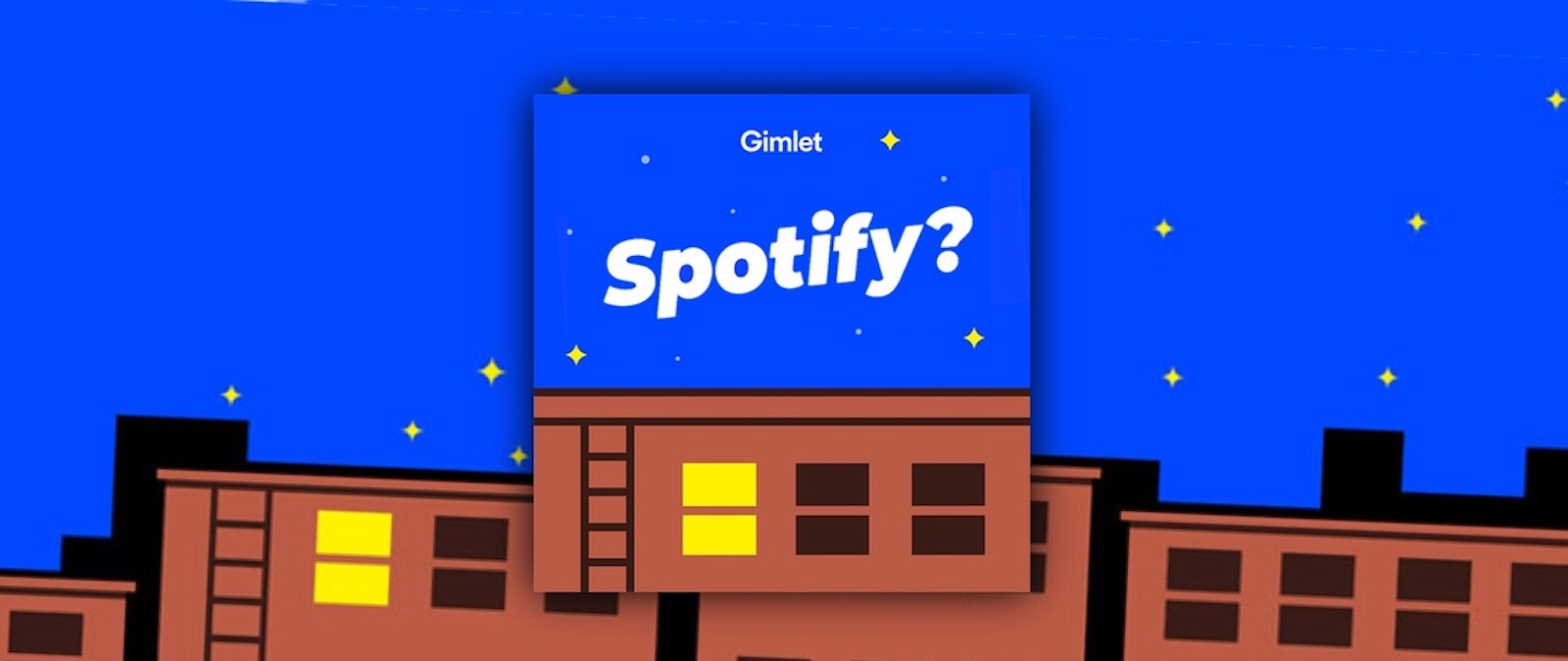
If I had a podcast, this is when I’d drop an emergency pod, because this is Kristaps Porzingis-level.
Recode’s Peter Kafka and The Wall Street Journal’s Ben Mullin and Anne Steele both fired out the story Friday evening that Spotify, the Swedish music streaming company, is apparently in “advanced talks” to acquire Gimlet Media. Both articles cite sources familiar with the matter, and it’s worth noting that the situation remains somewhat fluid.
Recode’s Peter Kafka had the story out first (barely), and he has the potential price on the deal: “A person familiar with the proposed deal says Spotify will pay more than $200 million in cash for the company.”
I can add to that with a confirmation: A source familiar with the matter tells me that the specific price is $230 million.
But the Journal’s story has a crucial detail you shouldn’t miss: “Talks are still ongoing and it is still possible that a deal won’t happen, the people said.”
If you’re looking for a yardstick, we can probably talk about Scripps’ 2015 acquisition of Midroll Media (since rebranded as Stitcher) for $50 million, plus another $10 million based on milestone achievements. But more appropriately, we’d have to talk about iHeartMedia acquiring Stuff Media for $55 million, which comps better because that’s a platform-ish company acquiring a straight-up content company, which is what we’re seeing with this Spotify–Gimlet situation.
Which is to say: If this deal closes, Spotify’s ingestion of Gimlet would be the biggest acquisition in the podcast industry to date. By quite a mile.
(Oh, and if you’re keeping track: The venture-backed Gimlet Media has raised around $28.5 million in funding to date, from a pool of investors that includes WPP, Betaworks, Emerson Collective, and Panoply parent Graham Holdings. As Kafka points out, the company last raised money in 2017 on a $70 million valuation. You know what? Just check out the Crunchbase listing.)
Also worth noting: This is Spotify’s first acquisition of a content company.
Gimlet Media presumably doesn’t need any introduction here, but just in case: It’s the Brooklyn-based podcast company founded in 2014 by former This American Life staffer and Planet Money co-founder Alex Blumberg and former WNYC producer/BCG consultant Matt Lieber. It’s (a) responsible for shows like StartUp, Reply All, and Homecoming, and (b) has become the somewhat polarizing venture-backed poster child for the current wave of podcast industrialization.
Spotify, in case you need reminding, has been getting up in podcasting’s business quite a bit for a while now. In fits and starts, it has attempted to carve out a proper podcast presence within its platform over the past few years. It initially functioned as a modest closed distributor before evolving into its current iteration: an exclusives-driven strategy (largely via talent deals with folks like Amy Schumer, Joe Budden, and Jemele Hill, though shout-out to Dissect) built on top of a more traditional “open-ish” podcast distribution system. Last month, the company signaled stronger intentions with podcasting, disclosing through a minor press push that it’s been experimenting with selling ads on its own podcasts since mid-2018 and is currently exploring the possibility of building out its own ad insertion tech. I wrote about Spotify’s podcast adventures and prospect during that push, and raised a ton of questions of how a Spotify podcast strategy would work.I’m not going to toot my own horn here…oh, what the hell. Here’s one point I raised: “Given Spotify’s content-led strategy, what are the odds it’s going to straight-up acquire one or more podcast content companies in the near future? (If I were a betting man, I’d probably take that bet.)” Gimme my money.
I also want to flag another point I raised in that column, which I think will probably become an important piece in the coming days:
Spotify’s two-pronged podcast supply approach — directly curating unique show assets and opening up podcast submissions — should be recognized as a familiar one for the company. The move seems to be an inverted echo of an initiative that Spotify has been testing on the music side: first, quietly striking deals directly with independent artists (said to be relatively modest; “with advance payments of tens or hundreds of thousands of dollars, according to several people involved,” per The New York Times), and then, rolling out a new feature that allows independent artists to “upload songs and albums directly — without going through a single label company, distribution group or Spotify employee — and automatically receive royalty payments in their bank accounts,” as Rolling Stone described it. That latter feature, which is seen to be an upgrade to the listener-intelligence-oriented Spotify for Artists program, is in invite-only beta at the moment.
Okay, so. I’m going to mull on this and deliver a little more analysis in Tuesday’s Hot Pod, but in the meantime, a few quick thoughts: